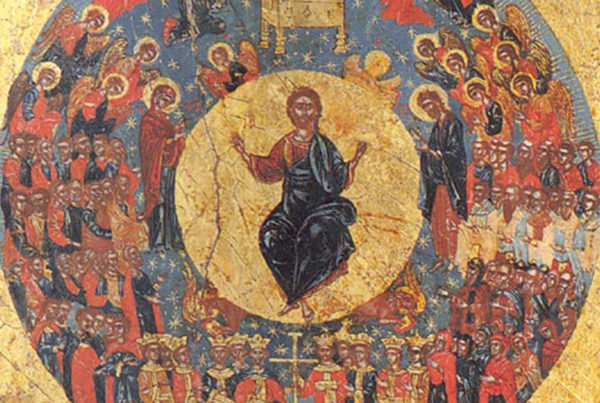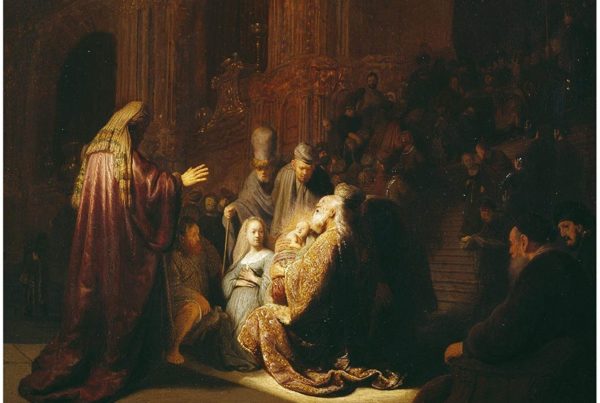I’ve been doing a bit of reading lately for a possible doctoral research project having to do with the faith and practice of the early church. As such, my Amazon “recommended for you” is getting more interesting by the minute :).
One of the really good books I’ve read on the topic thus far this year was Larry Hurtado’s Destroyer of the gods. In it, Hurtado examines the reasons for the generally harsh treatment rendered against Christians in the first three centuries of the Church by Jews and pagans alike and concludes that Christianity’s relentless, Jesus-shaped monotheism combined with its trans-ethnic ethos and evangelistic zeal made it a material threat to the entire quasi-religious “mythos” of the Roman Empire, and thus needed to be (and was) resisted at every turn. A fabulous read that really whet my appetite for more of what Hurtado had to say.
Not long ago, “recommended for you” delivered a gem: a little-known book of Hurtado’s published by Marquette University Press entitled Why On Earth Did Anyone Become A Christian In The First Three Centuries? Great title, right? Reminds me of how they used to title books in the old days. Perfectly perspicuous.
In any event, I had to have it. The book is a printing of the 2016 Pere Marquette Lecture in Theology given by the author. I was curious about it because while Hurtado implicitly raised the issue in Destroyer and even goes so far at times to point out that in order for conversion to happen in a situation of persecution, the (perceived) benefits (whatever they may be) have to outweigh the costs, he never actually articulates what he supposes those benefits must have been.
In Why On Earth, he sketches out the beginnings at least of a suggestion of an answer. Admitting at the outset that much of the work of discerning an answer must be based on inference (since we have less direct testimony of individuals who converted than we’d like) and noting that different people convert to a new religion for “varying and multiple reasons” (p. 108), Hurtado gets to work eliminating what he deems implausible hypothesis. They are:
- The presence of the miraculous. Yes, Christianity was a religion of miracles. Yes, there is a good chance it had a higher incidence of miracles than other mystical movements and individuals. But Hurtado thinks it unlikely that anyone would convert to Christianity simply on the basis of the miraculous when the costs of becoming a Christian were so high. We’ll have to look elsewhere.
- The experience of the church as “family.” Once again, this was surely an attractive feature of Christianity. But it was, Hurtado notes, by no means restricted to Christianity. “[S]imilar familial language was used among members of other voluntary associations of the time, [which suggests] that in these other groups people could find meaningful interpersonal relationships” (p. 111)–and, we may note, once again, they could have them in those voluntary associations without the costs of Christianity. So, the question remains: why?
- Care for the needy. Indeed, it has often been hypothesized that early Christianity’s attractive power was its care for the needy (widows and orphans, etc.). That may have been, but this only works as an encompassing hypothesis to explain the growth of the early church if most if not all of the early converts to Christianity fell into this category. We have ample evidence, however, that they did not. Many early believers were well-to-do. Some came from aristocratic and upwardly mobile families. So, then, how would this be an incentive for them? Once again, we’ll have to look elsewhere.
- Others have suggested something called “status inconsistency.” That is, people of means who lacked the honor they felt they deserved in the wider society might have been motivated to join the ranks of a new religion in the hopes that they could remedy this perceived inconsistency by moving up in the ranks of the new religion. But this could hardly account for the rapid growth and spread of early Christianity, and once again Hurtado asks, “Even if you obtained some favor within such a group, how would that seem a bargain over against the greater social opprobrium accruing from being an adherent?” (p. 113). How indeed.
Now that the table has been cleared of false or weak hypotheses, what should we surmise about the early Christians? Based upon the experience of the Apostle Paul (especially as outlined in Phil 3:4-16) as a paradigmatic test case, Hurtado concludes (largely) that it was the affective interpersonal relationship with God that Christians believed they had experienced in Christ that made the decision worthwhile.
That is to say, what was distinctive about Christianity was its Christ, the impact he made upon individual lives, summoning them to obedience and faith. Paul’s experience of the risen Christ and his desire for ongoing union with him is what allows him to look back on his old life and regard it as “dung,” and to press on in spite of grave difficulties. Surely something like this was the experience of many of the early believers.
Moreover, Hurtado points out that within this teaching about and experience of Christ, Christianity represented a revolution in the very idea of God. The “high gods” of antique philosophy and religion tended to be so transcendent as to be inaccessible and disinterested in the affairs of humans. The God of Christianity, by contrast, while remaining transcendent (arguably more so) was also, surprisingly, a God of love who “sought (and even demanded) a loving relationship with people… [and] also demanded expression in love for other people…even one’s enemies” (p. 125; emphasis mine).
This was, needless to say, a genuine novelty. “In high pagan piety to be sure, particular gods could be praised as benign and generous, but it is hard to find references to any deities either loving humans or being loved by them in Roman-era pagan discourses” (ibid.). This, Hurtado notes, “was incredible to some, and, I suggest, powerfully winsome to others” (p. 126; emphasis mine). Indeed. And so the author concludes, in a passage worthy of our reflection:
For it is clear to me that early Christian allegiance was not solely acceptance of a set of beliefs intellectually considered, but involved also the affective and interpersonal impact of those beliefs…I think we must allow [this] some genuine and significant role in accounting for their readiness to take up Christian commitment, and for the resolve of those who maintained that commitment in the face of the difficulties it entailed (p. 132, emphasis mine).
Amen. And I think it goes without saying that precisely this element–this ethos of love, of genuine, redemptive interpersonal relationship, made possible by what the Triune God has accomplished for us in Jesus–is what makes the church winsome in any age.
So may it be.




